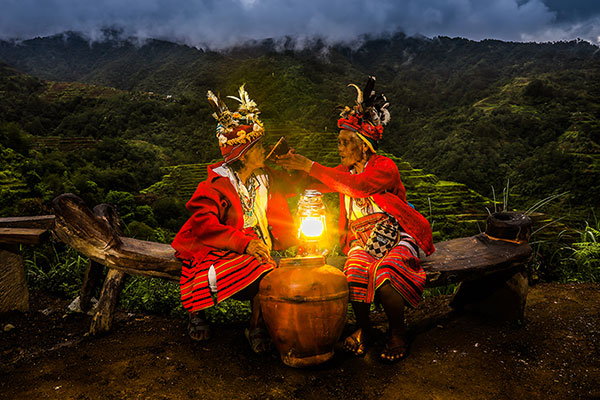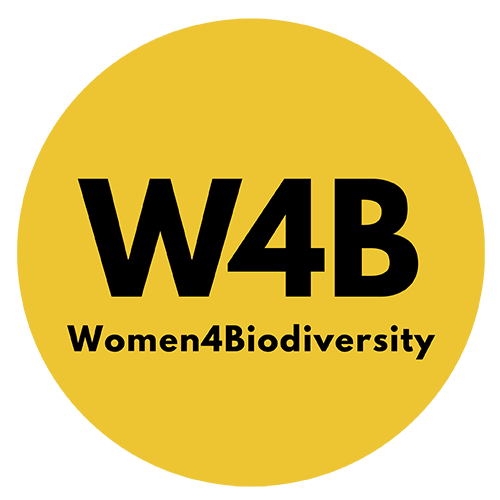Reflections on the UN Oceans Conference, Lisbon
By Vivienne Solís Rivera and Griselda Alvarado Picado CoopeSoliDar RL
The United Nations Oceans Conference (UNOC) was held in Lisbon, Portugal, from June 26 to July 1 and was attended by leading small-scale artisanal fisherwomen from Asia, Africa and Latin America. These women, united by the Call to Action of small-scale artisanal fishing and to position the document with a clear message, raised their voices in the open spaces to discuss the conservation of the oceans and small-scale artisanal fishing. They positioned the need to consider their knowledge for the conservation of the oceans, the fair recognition of a series of invisible jobs along the value chains of small-scale artisanal fisheries, and the urgency of launching a human rights approach in these discussions at the global level that are gender-sensitive.
Insights on small-scale artisanal fishing
Throughout the week of official events and side events, discussions were set up on: the impact of 30 x 30 on small-scale artisanal fishing communities, the need to protect coastal communities from the impacts and competition of the blue economy, and the need to strengthen as a priority the issue of the exercise of tenure rights and access to the sea for a dignified life for indigenous peoples and local communities who, being small-scale artisanal fishers or developing traditional fishing actions, live and depend on the resources from the sea.
CoopeSoliDar RL held a side event called “Dialogues for Marine Conservation and Small-scale Artisanal Fishing: A vision of small-scale artisanal fishing, in search of equity, social justice, sustainability and peace.” The event had the support of various civil society organizations: Network of responsible fishing marine areas and marine territories of life of Costa Rica, International Collective in Support of Fishery Workers (ICSF), ICCA Consortium, SwedBio, Packard Foundation, Costa Rica Humboldt, Environmental Defense Fund, Small Scale Hub Blue Ventures, LMMA Movement, AW FishNet, CAOPA Marine responsible fishing area and Marine territories of life Network, Association of Indigenous Communities of the Walaywe Territory, and the Pu Wapi Indigenous Community: This event had as main objectives:
- Amplify the voices of small-scale artisanal fisherfolks in territories of life conserved by indigenous peoples and local communities and enable them to express their vision and efforts for marine conservation, sustainable use and local governance systems and responsible artisanal fishing.
- Provide an opportunity for rights holders and custodians of traditional marine territories to express the enormous challenges they face in maintaining their autonomy, governance, resilience and cultural identity while taking into account the critical role of women and girls, all of which it is essential to achieve long-term ocean conservation and sustainable use of the ocean.
- Offer UNOC attendees the opportunity to reflect on what it means to promote marine conservation under a human rights-based approach, including ensuring effective stakeholder participation and the protection of human rights.
Gender equality and human rights in the Call to Action and the post-2020 global biodiversity framework
The Call to Action from small-scale fishers on the issue of gender has a specific axis that considers the issue of empowerment of women as a priority so that they organize themselves and participate actively in their organizations, as well as the promotion of decision-making processes until the existing barriers in different businesses are eliminated, both nationally and internationally. This Call strengthens the idea that having a specific Target 22 to consider gender equality in the post-2020 global biodiversity framework under the Convention on Biological Diversity is essential. A gender equality target will deepen and advance the inclusion of women’s issues in biodiversity conservation.
Under the Convention on Biological Diversity coordination, the parallel event “SDG 14 and the Post-2020 Global Biodiversity Framework: Carrying the Torch from Lisbon to Montreal (CBD COP 15) and Beyond” was held in UNOC. Vivienne Solís Rivera from CoopeSoliDar RL participated in this event, highlighting the importance of listening to the call to action of small-scale fishers presented to the Conference and ensuring their active participation in the process. She also talked about the post-2020 global biodiversity framework and the need to address it with a human rights approach to achieve its effective implementation.
The CBD also celebrated the 10th anniversary of the Sustainable Development Initiative, with various programmes aimed at strengthening the capacities of member countries in matters of interest to the Convention and the conservation of ocean biodiversity.
Despite the active participation of artisanal fisherwomen in UNOC, it is evident that more participation and representation of women and young women are needed in the different discussion spaces that were developed. and diverse voices that were present.
The crucial and clear message left by these representatives of indigenous peoples and local communities, all inhabitants of coastal-marine life territories, was that an effort must be made so that the people in the community are present in these negotiation spaces. It should also be noted these people are in the first line of defense of their coastal marine territories, they know how to fight for their rights and that their voices and knowledge be heard in all the decisions that affect their lives and territories.
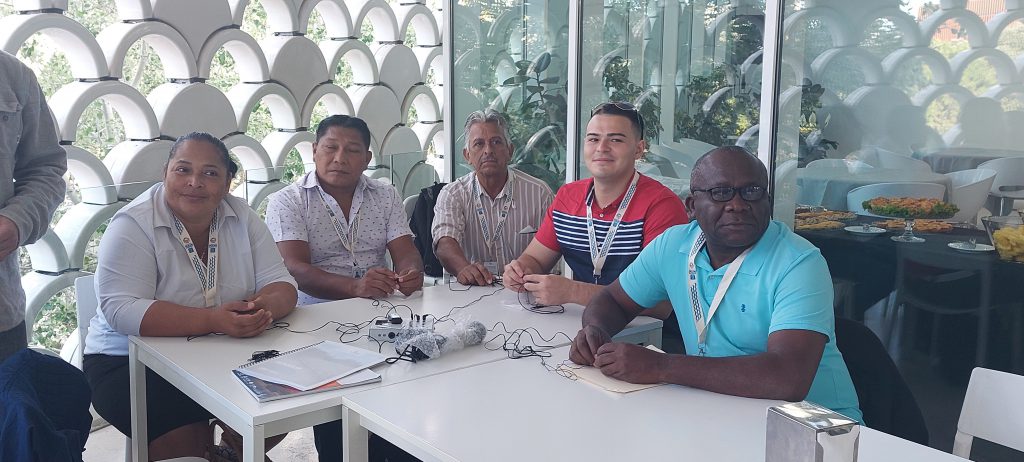
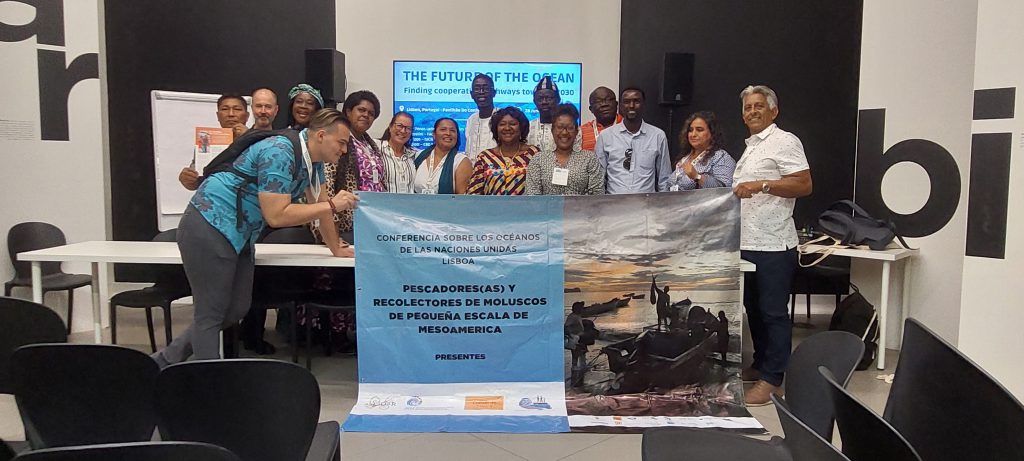
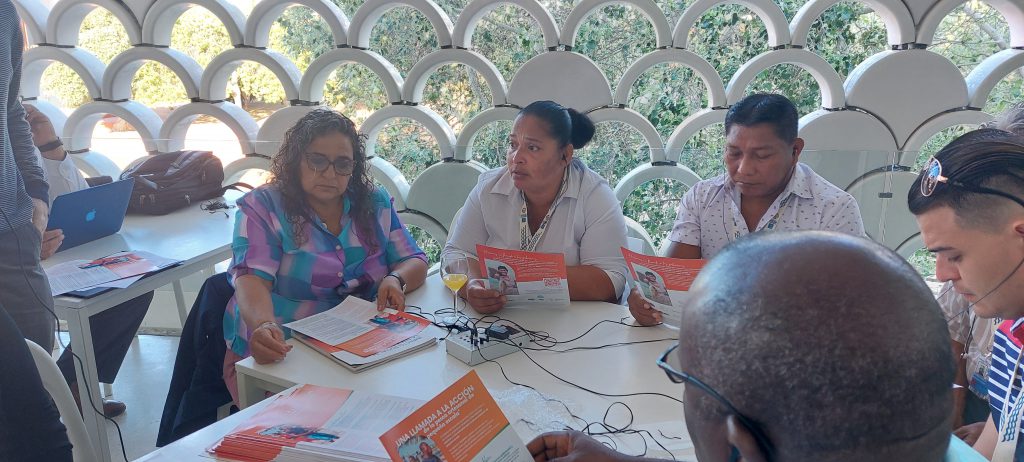
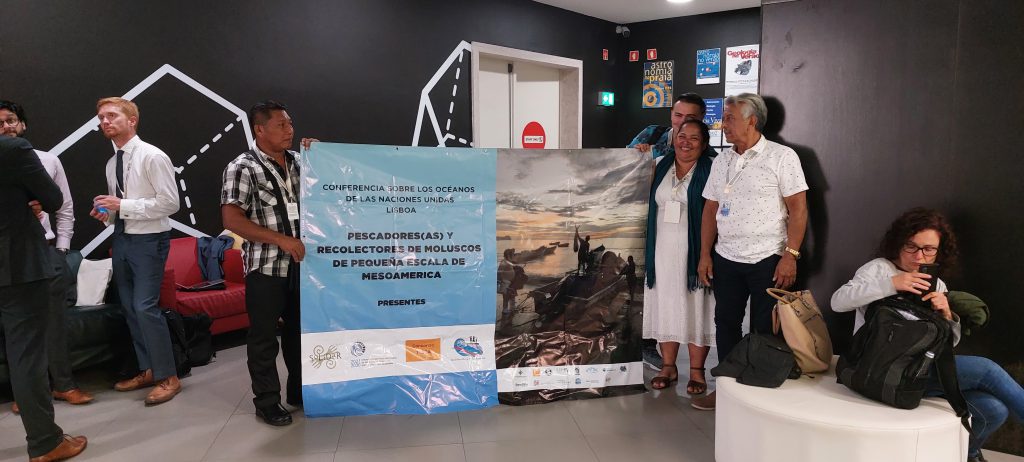
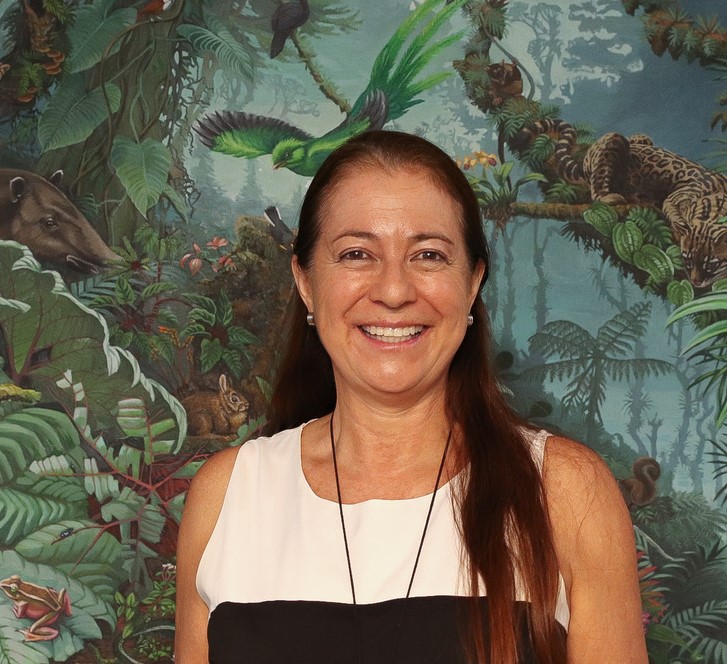
Vivienne Solís Rivera is a biologist from the University of Costa Rica, with a Master of Science in Systematics and Ecology from the University of Lawrence in Kansas, USA. She has more than 30 years of experience in biodiversity conservation in Mesoamerica and the Caribbean. In CoopeSoliDar R.L, her work in the last 25 years has been in marine conservation and human rights. She led the inputs from civil society, governments and fishing organizations for implementing small-scale fishers (SSF) guidelines in her region and promoting indigenous peoples and local communities (IPLC) governance models toward more equitable, efficient and effective marine conservation.
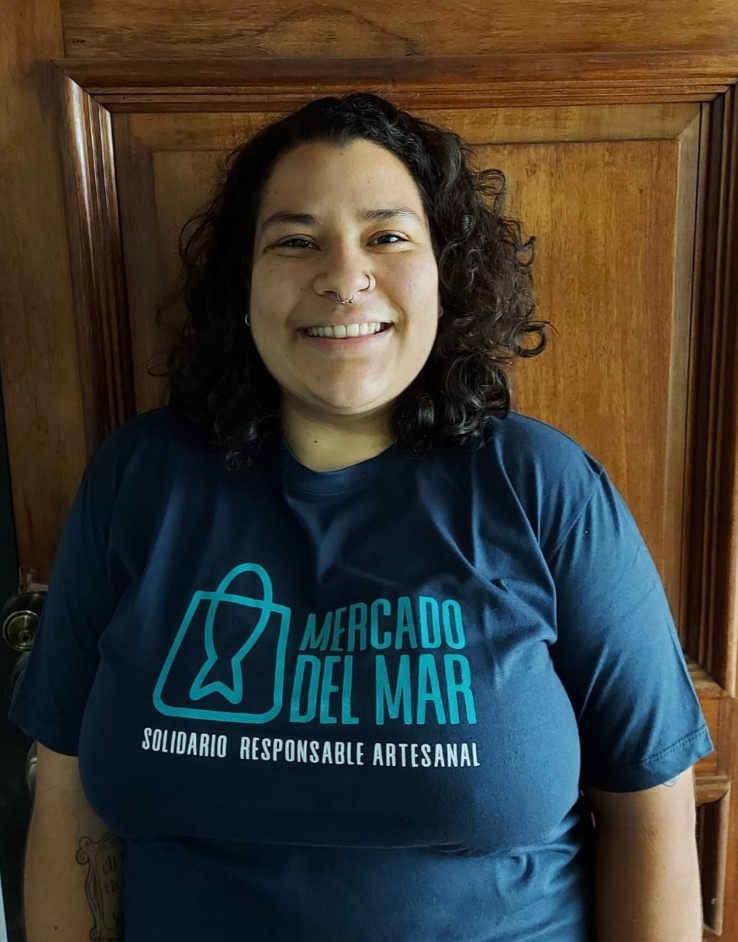
Griselda Alvarado Picado works with CoopeSoliDar R.L, a local cooperative based in Costa Rica. Is a youth leader for the rights and sustainable use of the oceans and all fisherfolk. She is a gender, human rights and youth specialist. She is currently working with a group of young fisherfolk, where together with the SSF Hub, they positioned the youth of Costa Rica in their platform to give an empathetic recognition to young artisanal fishermen and fisherwomen. She is also a member of the Global Youth for Biodiversity Network associated with the UN CBD.
